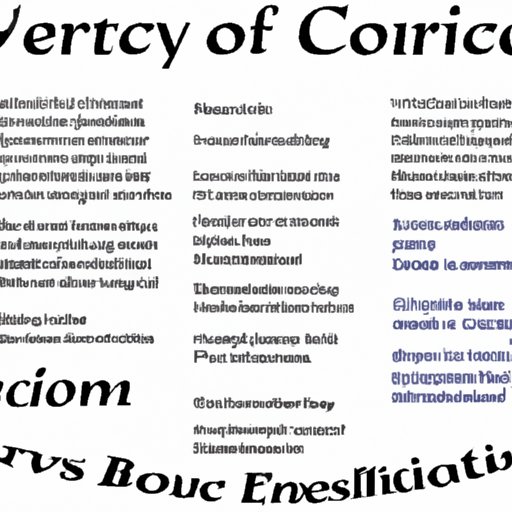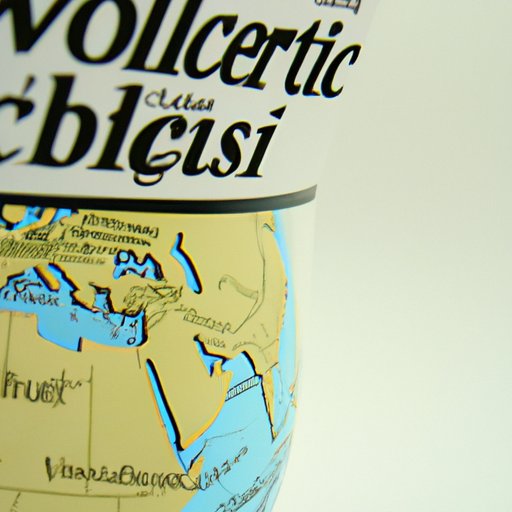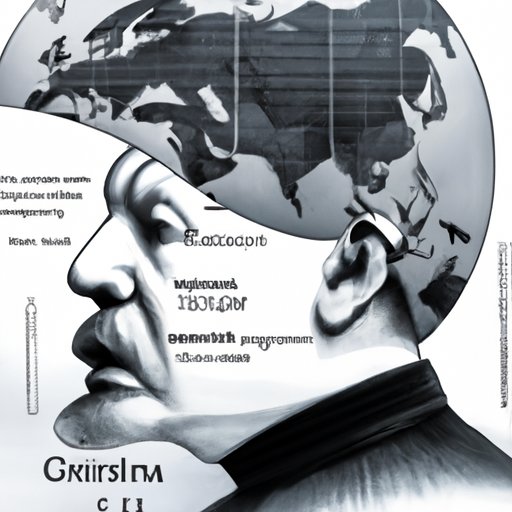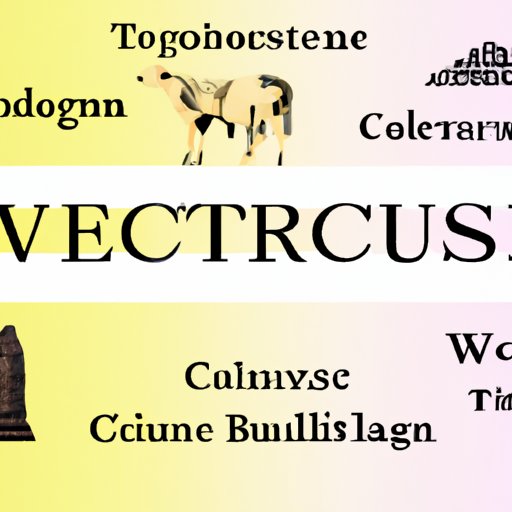An Overview of Western Culture: A Historical Perspective
Western culture is a broad term that refers to the social norms and practices of the countries located in the western part of the world. It is a combination of different cultures, religions, and philosophies that have evolved over centuries. It is often referred to as European culture, due to its origins in Europe, although it has since spread to other parts of the world. This article will explore the historical origins of Western culture, its major influences, and its impact on society around the globe.
Origins of Western Culture
Western culture has its roots in ancient Greece and Rome. These civilizations had a great influence on the development of philosophy, literature, art, and architecture. During the Middle Ages, Christianity became the dominant religion in Europe, which had a strong influence on the development of Western culture. The Renaissance period saw an increased interest in humanism and the arts, while the Age of Enlightenment led to advances in science, reason, and democracy. All of these events shaped the cultural landscape of modern-day Western culture.
Major Influences on Western Culture
Western culture has been influenced by many different factors throughout its history. Religion has played an important role, with Christianity having a major influence on the culture of Europe. Other religions such as Judaism, Islam, and Hinduism have also had an impact on the development of Western culture. In addition, the influence of Ancient Greek and Roman civilizations can still be seen today in the form of language, literature, art, and architecture. Finally, the industrial revolution and the advent of new technologies have also had a significant impact on the development of Western culture.

Exploring the Core Values and Beliefs of Western Culture
Western culture is based on certain core values and beliefs. Some of these values are rooted in traditional beliefs, while others have emerged in more modern times. Here we will take a look at both traditional and modern values of Western culture.
Traditional Values of Western Culture
One of the most important traditional values of Western culture is the belief in individualism. This is the idea that each person should be free to pursue their own goals and dreams without interference from others. This value has been strongly influenced by the writings of philosophers such as John Locke and Jean-Jacques Rousseau. Individualism is closely linked to the concept of liberty, which is the belief that people should be allowed to live their lives without oppressive government control.
Another traditional value of Western culture is the emphasis on rationality. This is the belief that decisions should be based on logical reasoning rather than emotion or intuition. This value has been heavily influenced by the works of philosophers such as Immanuel Kant and David Hume. Rationality is closely linked to the concept of progress, which is the belief that society can be improved through the use of science and technology.
Modern Values of Western Culture
In more recent times, Western culture has adopted a number of new values. One of the most prominent is the emphasis on tolerance and inclusion. This is the belief that all individuals should be treated with respect regardless of their race, gender, religious beliefs, or sexual orientation. This value has been strongly influenced by the civil rights movements of the 20th century. Tolerance is closely linked to the concept of equality, which is the belief that all people should be given equal opportunities and rights.
Another modern value of Western culture is the emphasis on environmentalism. This is the belief that humans should strive to protect and preserve the natural environment. This value has been heavily influenced by the work of environmentalists such as Rachel Carson and Al Gore. Environmentalism is closely linked to the concept of sustainability, which is the belief that society must strive to meet the needs of the present without compromising the ability of future generations to meet their own needs.

Examining How Western Culture Has Influenced Society Around the Globe
Western culture has had a profound effect on societies around the world. Its influence can be seen in the way people dress, eat, speak, and interact with one another. Here we will take a look at how Western culture has impacted other cultures around the globe.
Impact of Western Culture on Other Cultures
Western culture has had a significant impact on the cultures of other countries. For example, the spread of Christianity has resulted in the adoption of many of its beliefs and customs in non-Western societies. In addition, Western values such as individualism and rationality have been embraced by many non-Western cultures. Finally, the spread of Western art, music, and literature has had a profound influence on other cultures around the world.
Spread of Western Culture Through Media and Technology
The spread of Western culture has been greatly aided by the rise of global media and technology. Television, movies, and the internet have allowed Western culture to reach even the most remote corners of the world. Social media has enabled people to connect and share their views and experiences with one another, regardless of their location. As a result, Western culture has become increasingly visible and accessible to people around the globe.

Impact of Globalization on Western Culture
Globalization has had both positive and negative impacts on Western culture. On the one hand, it has allowed for the spread of Western values and beliefs to other countries. On the other hand, it has also led to the homogenization of cultures and the erosion of local traditions and values.
Positive Impacts of Globalization on Western Culture
One of the positive impacts of globalization on Western culture is the increased access to foreign goods and services. This has allowed Western consumers to experience products and services from other cultures. In addition, globalization has resulted in increased international travel, which has enabled people to learn more about other cultures and gain a better understanding of the world. Finally, globalization has enhanced communication between different cultures, allowing them to exchange ideas and collaborate on projects.
Negative Impacts of Globalization on Western Culture
Despite the positive impacts of globalization, there have also been some negative effects on Western culture. For instance, globalization has led to the homogenization of cultures, as people are increasingly exposed to the same products and services regardless of where they live. In addition, globalization has led to the erosion of local traditions and values, as people become more accustomed to Western ideals. Finally, globalization has resulted in increased competition, which can lead to a decrease in wages and job security for workers in Western countries.
The Changing Face of Western Culture in the 21st Century
Western culture is constantly evolving, and the 21st century has seen a number of changes. Here we will take a look at some of the trends in Western culture and what the future may hold.
Trends in Western Culture
One of the trends in Western culture is the increasing acceptance of diversity. This includes the acceptance of different races, genders, sexual orientations, and religions. In addition, there has been an increase in the number of people who identify as “spiritual” but not religious, as well as those who embrace alternative lifestyles. Finally, there has been a shift towards more inclusive and tolerant attitudes towards minorities.
Future of Western Culture
It is difficult to predict what the future holds for Western culture. However, it is likely that globalization and technological advancements will continue to shape the cultural landscape. In addition, the increasing acceptance of diversity and progressive values may lead to further changes in the way people view and interact with one another. Whatever the future holds, it is clear that Western culture will continue to evolve and adapt to the changing world.
(Note: Is this article not meeting your expectations? Do you have knowledge or insights to share? Unlock new opportunities and expand your reach by joining our authors team. Click Registration to join us and share your expertise with our readers.)
